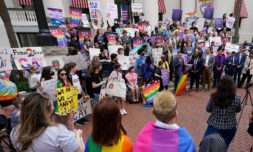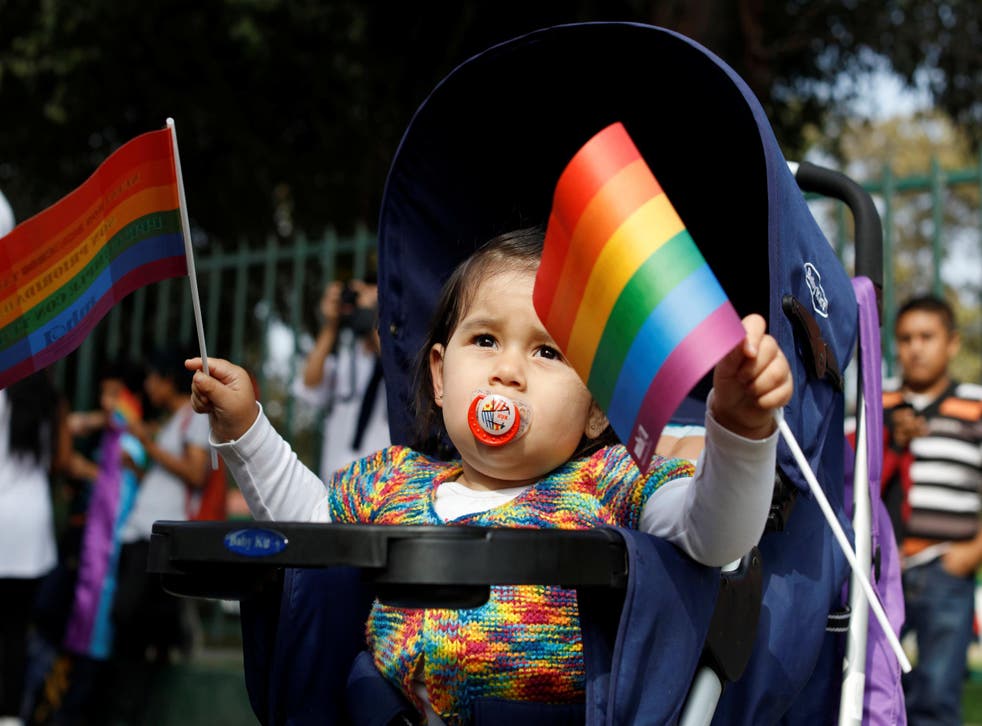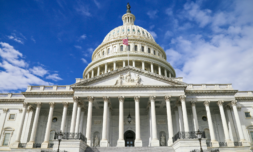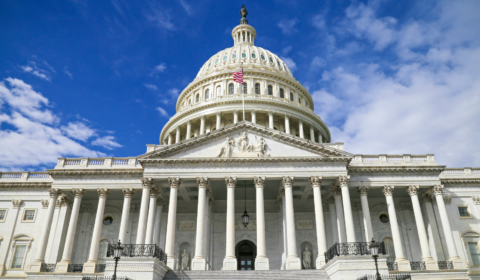Attributable to our push for a more inclusive future, a new report shows that the percentage of Gen Zers who identify as LGBTQ+ has almost doubled since 2017. Following recent societal regressions, however, this increase could simply indicate that more youth will be exposed to discrimination and its noxious psychological effects.
According to Gallup, the percentage of Gen Zers who identify as lesbian, gay, bisexual, transgender, queer, or something other than heterosexual has almost doubled since 2017 from 10.5% to 20.8%.
Should this trend continue, the global analytics firm predicts this proportion will become even higher once all members of the demographic reach adulthood.
Given our collective push throughout the last decade for a more inclusive future as well as a drastic improvement in legal protection against homophobia across the globe, this is likely.
Yet in light of recent societal regressions, this increase could simply indicate that more youth will be exposed to the harmful repercussions of marginalisation, discrimination, and peer rejection.
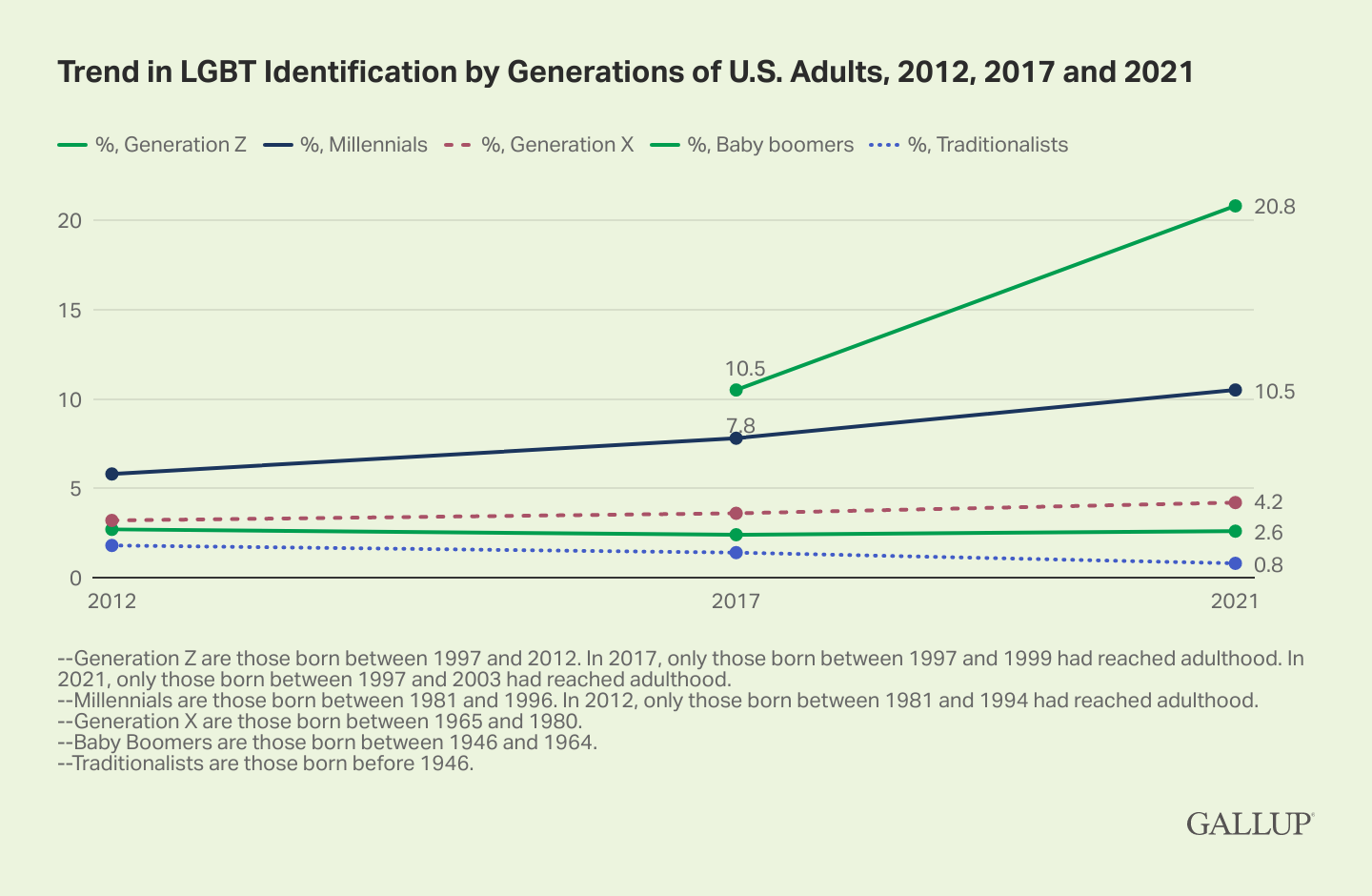

These setbacks include the 270 anti-LGBTQ+ bills that have been introduced in the US this year alone, which point to a disturbing surplus of censorship that primarily seems to target children.
One in particular, Florida’s ‘don’t say gay’ legislation which was signed into law this week, bans any classroom discussion regarding sexual orientation or gender identity in a manner that is ‘not age or developmentally appropriate’ and encourages parents to sue teachers for suspected violations.
This, of course, has triggered an influx of psychological distress among young people.
The Trevor Project, a non-profit organisation that’s striving to build a safer world for LGBTQ+ youth, has published a report exposing the magnitude of this, with two-thirds of participants attributing the new restrictions to a substantial decline in their mental wellbeing.


Not only this, but the survey found 42% of them to have seriously considered suicide in the past 12 months.
‘LGBTQ+ youth do not possess a predisposition for suicidality because of their identity or sexual orientation,’ says Natasha L. Poulopoulos, a paediatric psychologist.
‘Rather, their experiences of marginalisation, discrimination, and peer rejection serve as significant factors for increased suicidality and mental health symptomatology – which is the epitome of minority stress theory.’











